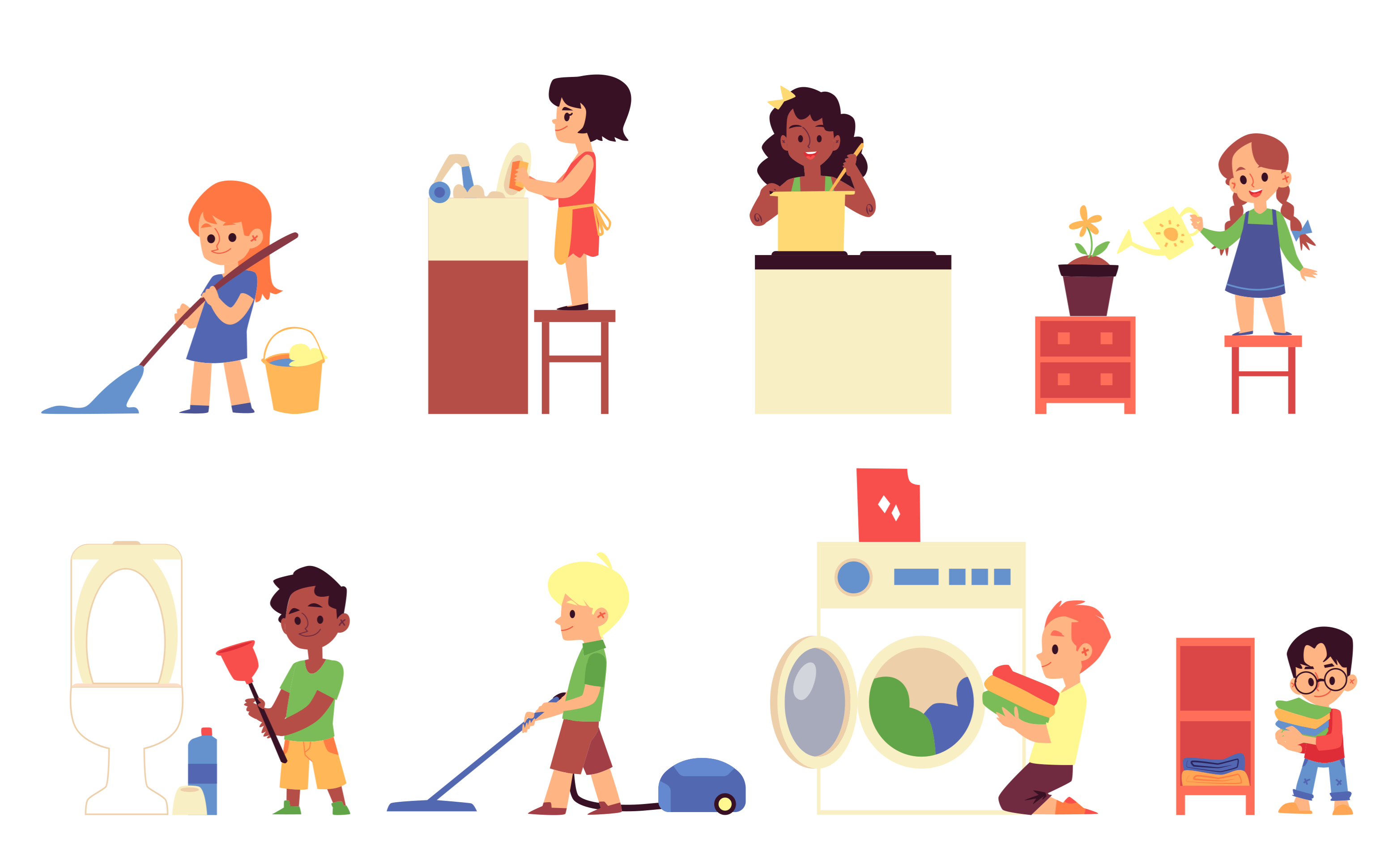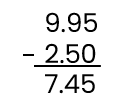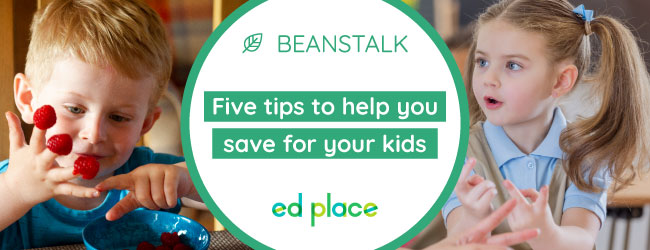
Money, money money... it's everywhere and this means that children are exposed to money and what these little discs or notes represent from a young age. It's therefore hardly surprising that money is taught in both Key Stage 1 and 2 of the National Curriculum. Below, we've created some money-related tasks for your key stage 2 child to complete but before they get started, here are our top tips when it comes to talking money with your child.
Teacher Top Tips: How to introduce money into the home:
By the time they reach Years 3 and 4, children should already be able to recognise coins and make simple amounts with them. Then, in Year 3 they’ll be taught how to add and subtract amounts of money to find totals and also to find out how much change would be given. Later, in Year 4, they will build on their knowledge of place value alongside developing their understanding of money.
Shopping with your child (real or imaginary) can be a fantastic way of helping them to get real-life understanding in Maths at this age. Talk to them about how much items cost and encourage them to start working out how much shopping will cost in total. You can also encourage them to count on from the amount their items cost to the amount they gave the shopkeeper, to ensure they have been given the right change. This will support what is taught in school but in a fun, accessible way.
Another great way of getting your child interested in money and budgeting at this age is to allow them to earn small amounts of money for doing chores and errands around the house. Your child may like to work towards a larger purchase such as a toy, game, or day out and you could work with them to calculate how many times they need to wash the car or walk the dog to be able to reach their goal! Doing this with your child from an early age will not only help them with maths lessons at school but it will encourage them to develop financial independence and responsibility - an essential life skill.
Let's get down to the task at hand!
Ok, now it's over to your child. Why not work through the following tasks together to get them thinking about money.
We’re sure that by now, you are a superstar at recognising different coins and notes and you’ve probably been shopping and paid for items lots of times. In this activity, we'll be helping you to develop your money skills a bit further
Task 1 - Doing the chores!

Do you help out around the house and garden? Doing chores is a fantastic way of earning some extra pennies in your spare time! You could ask your parents, grandparents and even well-known neighbours if there are any little jobs which you could do to earn some pocket money. Whether it’s washing the car, doing a spot of gardening, or taking the dog for a walk, there are lots of ways you can earn some money.
Imagine you have done the following jobs over a weekend:
Walking the neighbour's dog - £1.50
Hang out the washing at home - £1.75
Washing the car - £4.25
Can you work out how much you would have earned in total?
Safety first: Talk to your parents first and make sure they always know where you are if you're planning to offer your services to the neighbours!
Task 2 - Saving up to treat yourself!
If you have been busy doing the first task and earning lots of money while doing it, why not set yourself a goal to work towards? Maybe you have your eye on a new video game, a piece of sports equipment or some jazzy new stationery? Saving up your money to buy something special can be so rewarding.
A great way of keeping track of your savings is to start a list. You might like to do this electronically or in a notebook. Keep your money in a safe place like a piggy bank or even in a real bank account. Make a note of each time you earn some money and add it to your grand total. You could also set a target and work out how many times you need to wash the car or hang the washing out before you can afford that special treat.
Let’s give this concept a go:
1) Caitlin is saving up for a new football. The football she is really keen on costs £9.95.
Caitlin has been doing chores to earn money and so far has earned £2.50.
How much more does Caitlin need to earn to afford her football?
2) If Caitlin earns £2.50 each time she walks her neighbour’s Jack Russell, how many times will she need to do this before she has enough money for the new football?
Task 3 - Time for change!
Have you ever been given ‘change’ in a shop when paying for items? Do you understand how this works and do you know how to check that you have been given the right change?
When you pay for items in a shop, you often don’t have the exact money to pay for the total cost. Imagine you have bought some books, costing £6.99 in total. In your wallet or purse, you might only have a £10 note. The shop assistant will give you back the change, which is the difference between the money you gave them and the actual cost of what you're buying.
One very quick and easy way of checking the shop assistant has given you the correct change is to count up from the cost to the amount you handed over.
Let’s explain how to do that in a step by step method:
So, I am shopping and I spend £6.99 but hand over £10 as I don't have the exact money.
How much change should I get?
If you've enjoyed getting your head around these money matters, why not try these other EdPlace activities to put your understanding to the test?
All activities are created by teachers and automatically marked. Plus, with an EdPlace subscription, we can automatically progress your child at a level that's right for them. Sending you progress reports along the way so you can track and measure progress, together - brilliant!
Counting Cash: Work out change
Counting Cash: Write the amount in pence
Keep going! Looking for more activities, different subjects or year groups?
Click the button below to view the EdPlace English, maths, science and 11+ activity library
All English, maths and science from Year 1 - GCSE
Answers
Task 1
An easy way to do this is to split the pounds and pence up.
£1 + £1 + £4 = £6
That was nice and easy. Now for the pence!
50p + 75p + 25p
We can see that 75p and 25p add together to make £1. Add another 50p and you have £1.50.
Now to find the grand total...
£6 + £1.50 = £7.50
Task 2
1) You could either do this mentally or use column subtraction. We need to write the following subtraction sentence: £9.95 - £2.50
Here is the column subtraction, which shows that Caitlin still needs to earn £7.45.

2) An easy way to work this out is to count in steps of £2.50.
£2.50 …. £5.00 …. £7.50
After walking the dog three times, Caitlin would have more than enough money to buy her new football. Great work Caitlin! What will you decide to save up for? Happy earning!
Task 3
First, count up to the nearest £1 from £6.99. In this case, it’s just 1p to get to £7!
Next, count up in pounds to the amount you handed over. From £7 to £10, you would count up £3.
So, the change should be £3.01, or £3 and 1 penny.
Next time you are out shopping, take a moment to check your change. You must do it while at the till, as any mistake discovered after you walk away won’t be corrected.







